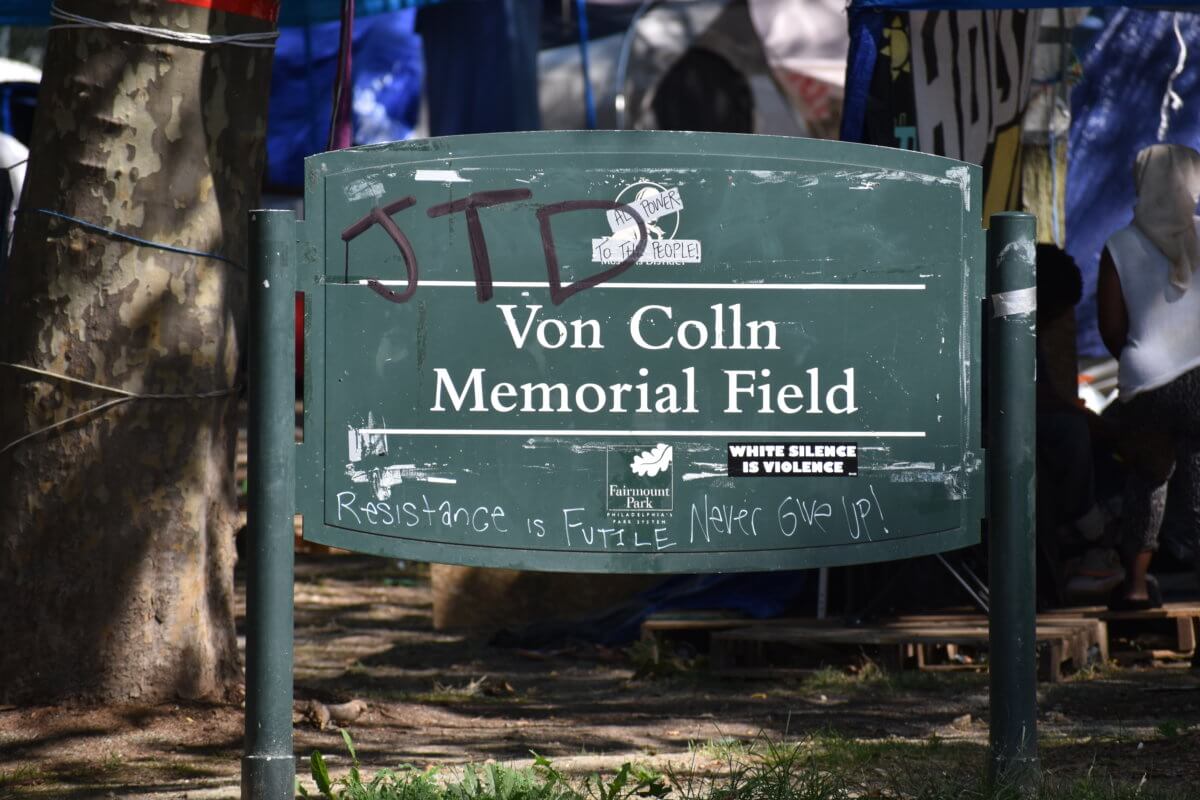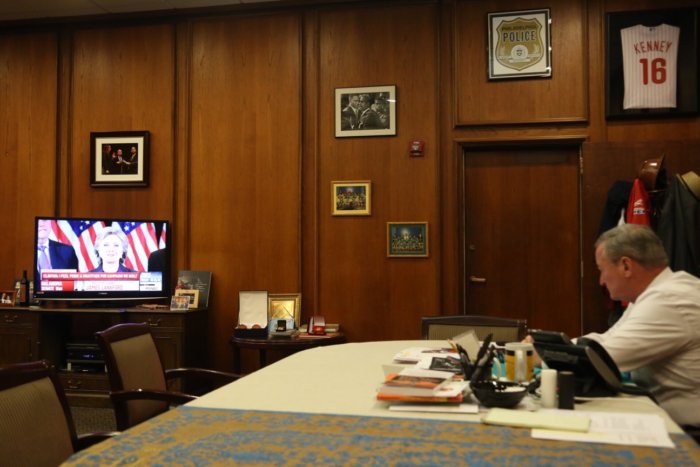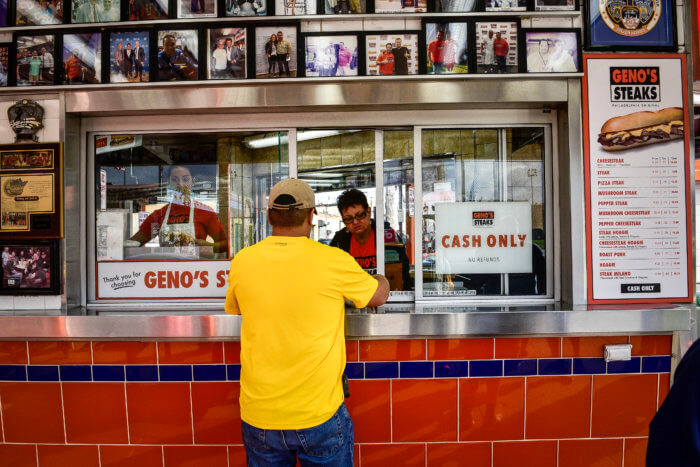For the third time, city leaders have issued an ultimatum to those living in homeless encampments on the Benjamin Franklin Parkway and on Ridge Avenue in North Philadelphia.
Officials posted formal notice Monday morning ordering the removal of the camps by Wednesday, Sept. 9, at 9 a.m.
A federal judge paved the way for the move last week, when he ruled in favor of the city on a motion to block the closure of the camps.
Residents of the camps, which were formed in June as a protest for affordable housing, have expressed a desire to resist attempts to clear out the tents.
Mayor Jim Kenney, in a statement, struck a more conciliatory tone, while again indicating that the camps will not be allowed to remain. He urged homeless people still living in the tents to “voluntarily decamp” before the deadline.
After negotiations between Kenney’s administration and camp organizers broke down in mid-August, the mayor characterized the encampments as places filled with drugs, violence and unsanitary conditions.
“The protests have brought new attention to the magnitude of the suffering endured, primarily by Black Philadelphians, and I appreciate all involved for shining a spotlight on this critical issue,” Kenney said Monday.
“We are committed to working together with homeless people and their many advocates and supporters for policies and programs that will make ending homelessness a reality,” he continued.
Officials said homeless outreach workers will continue to canvass the area offering services, and, so far, 111 people from the camps have been placed in shelters, residential treatment centers and COVID-19 quarantine hotels, according to the Mayor’s Office.
People living at the camps have contended that they are safer living outdoors, fearing that shelters and other temporary housing options are breeding grounds for the virus.
Deputy Managing Director Eva Gladstein said shelters have housed more than 6,500 people since March, and only 120 have tested positive, an infection rate of less than 2%.
“We have listened to the encampment leaders long enough,” Kelvin Jeremiah, the executive director of the Philadelphia Housing Authority, said in a statement. “While in a pandemic, Philadelphia simply can’t continue to allow large gatherings that heighten health risks for these at risk communities.”
The smaller of the two main encampments is at Jefferson Street and Ridge Avenue, near PHA’s headquarters, and officials have said it is delaying construction of a much-needed grocery store.
PHA, in response to the demands of camp organizers, has put a moratorium on the sale of new market-rate properties, pending the results of an independent study. Advocates have said the agency is sitting on vacant homes which could be utilized as low-income units.
On Tuesday, the authority plans to release a list of 62 vacant properties that will be made available through a new program allowing nonprofit community organizations to develop affordable housing. Up to 300 PHA properties will be included in the initiative.
Philadelphia Housing Action, the group behind the encampments, has expressed interest in forming a land trust to oversee low-income units.
City officials said plans are underway for the construction of a “tiny house village,” and the Kenney administration is rolling out a new program to provide up to two years of rental assistance for people who are homeless.
Money from the federal CARES Act will also be funneled into creating 900 to 1,400 new long-term affordable housing units, the administration said.
“We’ve listened, discussed, and responded to their demands, and I’m proud of a number of actions that are already underway,” Kenney said.
Housing advocates worry an expiring moratorium on evictions could lead to an increase in the number of people sleeping on the street and needing emergency shelter.
The suspension on evictions and foreclosures ends Tuesday, and Philadelphia courts are expected to resume landlord-tenant hearings on Thursday, though newly-filed cases will be delayed until November. Evictions could begin as early as Tuesday, Sept. 8.
An eviction diversion program approved by City Council during the pandemic will be launched this month, but it might be too late for some.
The U.S. Census Bureau estimated that about a quarter of all residents in the Philadelphia metro area, which includes parts of New Jersey, Delaware and Maryland, are housing insecure — which means they missed last month’s rent or mortgage, or they have little to no confidence they can pay the coming month’s bills.
Last week, Gov. Tom Wolf asked the legislative leaders to extend the moratorium, claiming he didn’t have the power to do so; however, according to the Associated Press, he hinted he could attempt to extend it on Tuesday.
“You have to wait and see,” he said.
































